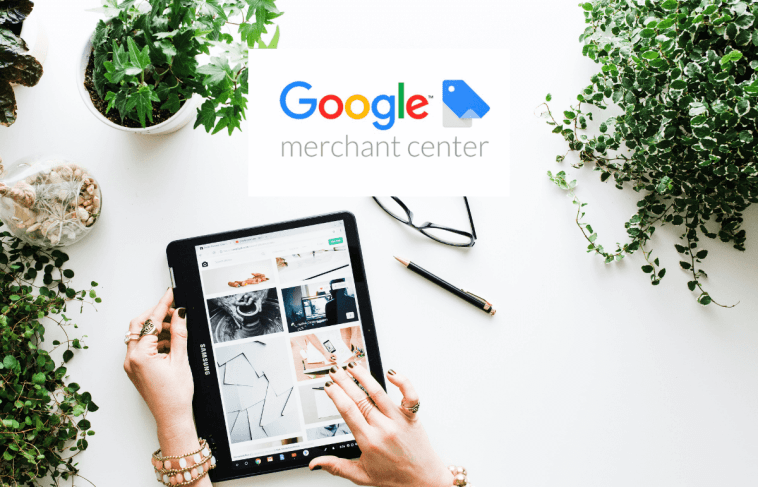Introduction.
Making your website visible on Google isn’t just a nice-to-have—it’s essential if you want people to find your content, products, or services online.
I’ve been there, and I know that getting your site seen by the right audience can feel overwhelming at first.
In this post, I share my insights, tips, and resources to help you tackle this challenge head-on in a friendly, approachable way.
Why Getting Found on Google Matters
When I started my journey in digital marketing, one of the first lessons I learned was that about 93% of online experiences begin with a search engine (source: Search Engine Land). That means if your website isn’t visible on Google, you could be missing out on a huge amount of traffic.
More visitors often translate to increased sales, readership, or engagement. Simply put, if your site isn’t showing up in search results, it’s like having a store without a sign—nobody will know you’re there.
Being on Google isn’t just about vanity metrics like page views. It’s about building trust and credibility. When users see your website appear near the top of Google search results, they’re more likely to trust your brand. This trust can foster loyalty and long-term relationships with your audience.
Getting Started: The Basics
If you’re wondering where to start, I always recommend making sure your website is crawlable and indexable by Google.
This means checking that your pages aren’t accidentally blocked by the robots.txt file or noindex tags. Setting up a Google Search Console account is a smart first step.
It’s a free tool from Google that helps you understand how your site is performing in search results and alerts you to any problems it might be having.
A Few Simple Steps
Submit Your Sitemap
A sitemap is like a map of your website that tells Google where to find all your important pages. You can create one manually or use plugins if you’re on platforms like WordPress. Once your sitemap is ready, submit it via Google Search Console.
Optimize Your Content
Google loves fresh, relevant content. I always advise focusing on quality over quantity. Make sure your content addresses the needs of your audience and includes keywords naturally.
Improve Site Speed
A fast-loading site enhances user experience. Google considers site speed as a ranking factor. Tools like Google’s PageSpeed Insights can help you identify and fix issues slowing down your website.
Mobile-Friendly Design
With more people using mobile devices, Google prioritizes websites that work well on smartphones and tablets. Responsive design is key here.
Advanced Tactics That Made a Difference for Me
After nailing down the basics, it’s time to explore more advanced strategies. When I first started, I was amazed at how much of a difference a few tweaks could make. Here are some techniques that have helped me see more consistent results in my own efforts:
Quality Content is King
Creating helpful, engaging, and informative content is one of the best long-term investments you can make.
Instead of focusing on short-term trends, I aim to offer valuable insights that answer common questions.
For instance, blog posts, tutorials, videos, and infographics all contribute to a richer, more engaging website.
Google’s algorithms are increasingly getting better at recognizing quality content, so it pays to focus on making your material as useful as possible.
Building Backlinks
Backlinks are when other websites link back to yours. They act as votes of confidence in your content.
When reputable websites link to your articles or pages, Google sees that as a sign of authority and can improve your ranking.
I often reach out to industry colleagues or guest post on reputable blogs as a way to earn these valuable links.
Local SEO
If you have a local business, optimizing for local search results is crucial. This means making sure your business is listed correctly on Google My Business and that your name, address, and phone number (NAP) are consistent across the internet. Local directories, community blogs, and social media can also boost your local visibility.
Social Signals
While social media links aren’t a direct ranking factor for Google, having a strong social presence can indirectly boost your search visibility.
For me, sharing content on platforms like Facebook, Twitter, and LinkedIn not only drives traffic but also signals to Google that people find my content valuable.
Regular Updates
I keep my website content updated regularly—not just for the sake of search engine algorithms but to ensure that visitors always get the most current and accurate information.
Google tends to favor websites that are constantly updated. A simple strategy like revisiting old posts and refreshing the content can go a long way.
User Experience (UX)
A positive user experience is essential. I’ve learned that if visitors don’t have a good experience on your website—if it’s confusing or slow—they are likely to leave quickly. Google takes bounce rate and time-on-site into account. Improving your design, navigation, and site structure has been a game-changer for me.
Frequently Asked Questions
I often get questions from friends and fellow website owners about making a site appear on Google Search. Here are some of the most common queries I’ve encountered:
How long does it take to see results on Google Search?
It varies. Sometimes it’s a few days, but often it’s a matter of weeks or even months. Patience is key, as search engines need time to understand and rank your site.
Do I need to pay for my website to appear on Google Search?
No, organic search results are free. However, you can pay for advertising with Google Ads if you want additional visibility.
What are backlinks, and why are they important?
Backlinks are links from other websites to your own. They act as a vote of confidence from one site to another. High-quality backlinks from reputable sites can boost your website’s authority and search ranking.
Is my website automatically mobile-friendly?
Not necessarily. I recommend testing your site using Google’s Mobile-Friendly Test tool to see if it performs well on mobile devices and making necessary adjustments.
How frequently should I update my website content?
There’s no hard and fast rule, but regular updates keep your content fresh and relevant. I try to update my blog posts and pages periodically to reflect any new developments in my field.
Further Resources
If you’d like to dive deeper into the techniques mentioned above, here are some helpful links and tools that I often refer to:
Google Search Console: Get insights into how Google views your site, manage your sitemaps, and fix indexing issues.
Visit Google Search ConsoleGoogle Analytics: Track the performance of your website, understand user behavior, and get actionable insights.
Visit Google AnalyticsGoogle’s PageSpeed Insights: Assess and improve the speed of your website.
Visit PageSpeed InsightsMobile-Friendly Test: Ensure your website works well on mobile devices.
Try the Mobile-Friendly TestMoz’s Beginner’s Guide to SEO: A great starting point if you’re new to search engine optimization.
Read Moz’s GuideBacklinko’s SEO Blog: I found this to be incredibly useful for both beginners and experts looking for advanced tips.
Visit Backlinko’s Blog
These resources have helped me understand and navigate the ever-changing world of SEO, and I trust they can help you, too.
A Real-Life Story from My Journey
Not too long ago, I faced the same challenge I’m discussing here. My website was practically invisible on search engines, and I felt my hard work was going unnoticed.
After implementing a few strategies—like optimizing my content, tightening up my site’s loading speed, and building a few quality backlinks—I started to see gradual improvements.
It wasn’t an overnight miracle, but over time, more visitors began finding my site through organic searches. That little boost in confidence made it clear: following best practices for SEO can really pay off.
I also learned the hard way that SEO isn’t a one-and-done deal. It requires continuous effort and adjustments. Trends change, algorithms update, and new competition emerges.
The key is to be flexible and keep learning. I’m always on the lookout for new insights that can help improve my site’s performance.
Wrapping It Up
I hope this post has given you a clear picture of how important it is to optimize your website for Google Search and some of the strategies that can help get you started.
SEO might seem complex at first, but by taking it step by step and using the right tools and resources, you can make significant progress.
Before I sign off, let me leave you with a question: How do you plan to make your website appear on Google Search?
I’d love to hear your thoughts or any challenges you’re facing in the comments below. Let’s start a conversation and help each other out!





GIPHY App Key not set. Please check settings